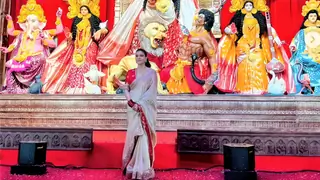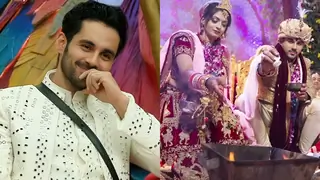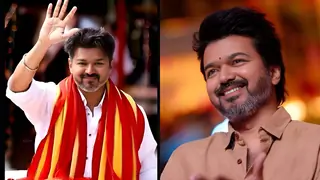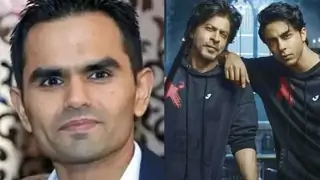Originally posted by: SanyaEterna
I agree! It looks so forced, they're using Kairav to push KaiRa closer while knowing that Kartik is a married man. It doesn't look emotional or romantic or bhagwan ki banai jodi at all, it just looks like Kartik is emotionally cheating on Vedika. If Naira wasn't back and Kartik still loved her (thus still cheating on Vedika emotionally) it would have still made sense. But now that Naira is here, they are showing all this and it's just ugh.
And Kairav, I understand he's a little kid, but if he's shown to be so mature at just 4 years, why can't his parents have a seat with him and calmly tell him that they can't live together and make a story? He's so smart, he's so sanskari and whatnot but Kartik and Naira have to do something quickly otherwise this kid will soon start crying for a baby sister again and God knows what will happen then😂
Yes. It is an old method. I want to share it here. For all.
It suits all platforms, all languages, since they all copy eachother.
https://www.thenewsminute.com/article/arrogant-wife-please-adjust-how-malayalam-cinema-has-portrayed-divorce-107581
In films, divorce is seldom seen as a valid option and women, especially, are required to stick through a marriage however toxic it might be.
Where children become the reason
As in real life, cinema too depicts children as a compelling reason for saving a marriage, however toxic it may be.
The 2008 movie Innathe Chinthavishayam, directed by Sathyan Anthikad, is about three women who are separated from their husbands, and the hero – Mohanlal – trying to reunite them.
“Innathe Chinthavishayam has a hero who takes it upon himself to mend the strained relationship between three married couples. While the reasons listed out by the married women are rather valid, he insists that divorce can never be an option, as it affects children and it would be selfish to simply think about oneself. In the end, he succeeds in bringing them back together,” says Neelima.
Children are often brought up as a reason in movies to justify the prolonging of unhappy marriages. Neelima mentions the 1990 Kamal movie Pookkalam Varavayi, in which Murali and Geetha are shown as a divorced couple, taking alternate custody of their little girl, played by Shamili.
“It typically talks about how divorce results in unhappy children. Their child runs away (and it's a hugely problematic narrative here) from the household to stay with a family who apparently showers her with love, and eventually, the parents and their decision to divorce are blamed for it,” she says.
The consensus being a woman should stay in a marriage, however abusive and unhappy it might be, for the sake of the children. The wife's trauma is never addressed,” Neelima says.
Films have rarely explored the effects that witnessing a bad marriage on a daily basis can have on children, choosing to focus on divorce as the villain instead.
Reading all this i realised why Sara Ali Khan said she was happy bcos she had 2 happy families instead of one ugly one.
The exceptions
Ozhimuri (2012), directed by Madhupal, came as a welcome change in this context because of the non-conformist stance it took. The wife in the film – played by Mallika – sticks to her stand till the end; she wants a divorce from the husband she has for long suffered (Lal) and does not waver even when her son asks her to reconsider.
There are other examples, more subtle ones. The character Manju Warrier played in Ennum Eppozhum, where the husband is never shown but is only talked about as an abuser, who stoops to hurting his own child to win a battle with his ex-wife.
A happily divorced woman appeared in Ranjith Sankar's Ramante Edan Thottam (2017), recalls Neelima.
"Malini walks out of an emotionally abusive marriage, insists of divorce and tells her husband that their daughter can stay in two happy homes,” she says.
“I realise that we don’t have many narratives around divorce. A few notable ones will be Kaniha in Spirit--after getting a divorce from Mohanlal citing alcoholism, she remarries, and interestingly, they still share a warm and friendly bond. Similarly, Mohanlal also maintains a friendship with Kaniha's new husband,” notes film critic and founder of Fullpicture.in, Neelima Menon.
Spirit is an exception, points out an advocate based in Thiruvananthapuram. “In a conservative society, a commercial medium may not venture outside what sells. Divorce rates have increased and we also have some high profile ones (in recent times). It may be becoming normalised, but the time has not yet come when it is seen as an adult decision after which both parties can walk away."
These films are still few and far between, but you can see writers and filmmakers becoming more sensitive to the idea of divorce or a separation, and respecting an individual’s choice without judging them to pieces.
Perhaps this viral bit of internet wisdom, which prioritises justice in a marriage over its longevity, sums it up best:
Q: “Most marriages are not working nowadays. What is it that we are doing that our grandparents didn’t do?”
A: Daughters didn’t inherit the silence of their mothers. My generation is mastering the art of leaving, letting go.
Hopefully, filmmakers will catch up with the generation that is willing to break their silence and move on.
If what Karthik said hurt her that much, it is not wrong for Naira to move on. (It is other thing that she cudnot give quality time to him when he's awake) Except her mistake that she has no intention to inform his child's presence to him and also hiding her being alive and her existence from her own family. What did they do to bear that pain?
But this is all about their love story and they wud reunite in the end no matter how toxic their relationship is. Why did they even bring this track?
Edited by TeenRose1 - 6 years ago


































4